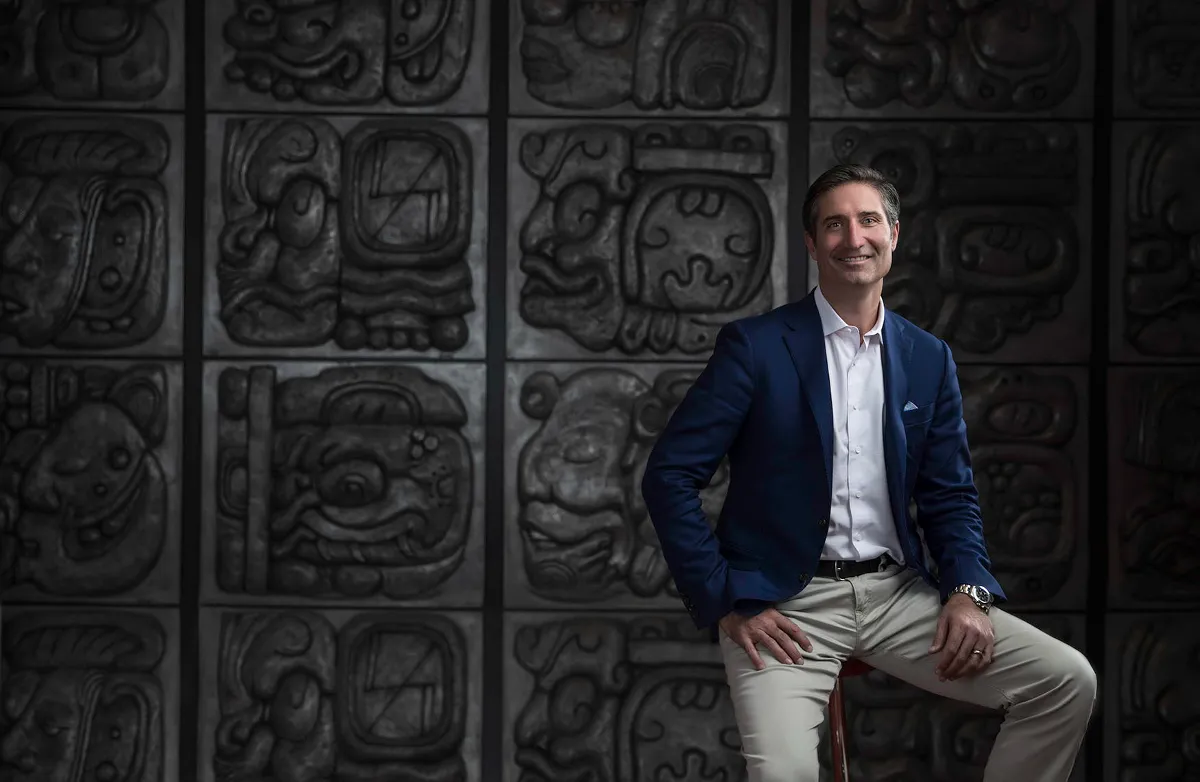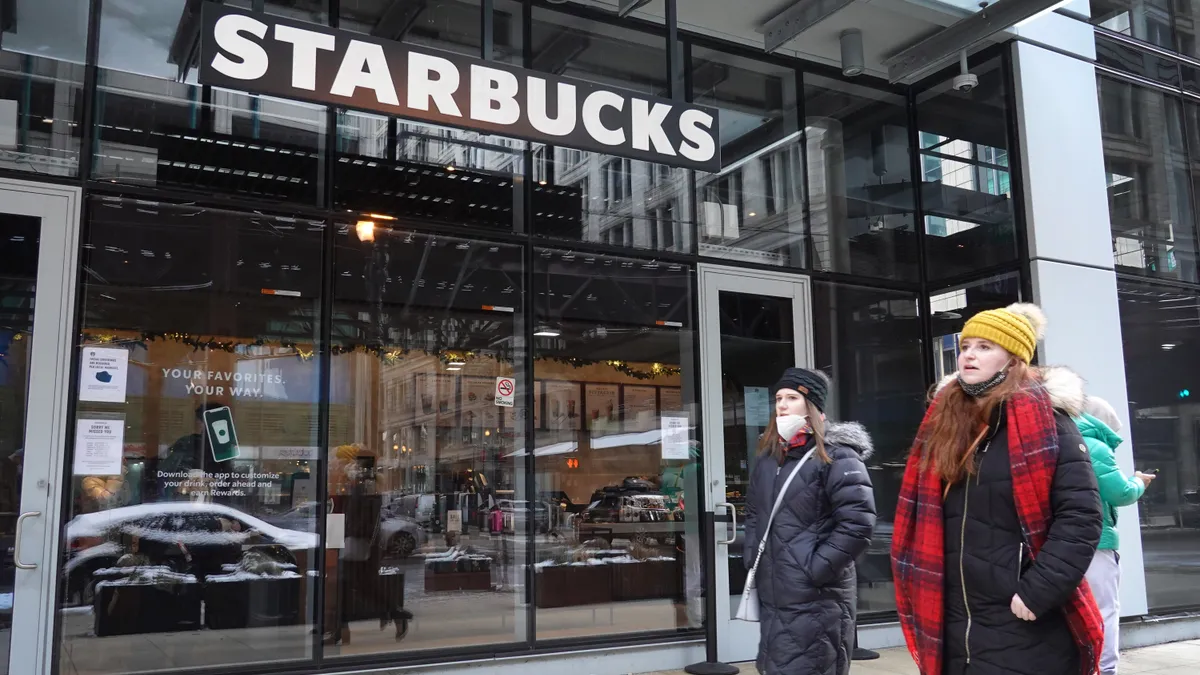For several quarters, Starbucks has faced traffic and same store sales pressures, due a confluence of factors. Occasional customers have pulled back in the U.S. as a result of pricing, operational problems related to mobile orders and a boycott over the chain’s perceived stance on Palestine. In China, comparable sales fell 14% last quarter as a result of consumer pullback and an increasingly competitive coffee market.
Incoming CEO Brian Niccol’s experience leading Chipotle on a lengthy run of success seems to bode well for the coffee brand, said analysts, who also noted that Niccol has the approval of Howard Schultz, the influential ex-CEO of Starbucks.
The news of Niccol’s hire and the abrupt departure of ex-CEO Laxman Narasimhan prompted the company’s stock price to shoot up from $77 at the close Monday to more than $95 at the end of trading Tuesday, signaling market confidence in the company.
But while Niccol had a successful run at a restaurant chain famous for big burritos, he’ll face a raft of new challenges overseeing the multinational coffee brand, including improving a flailing business in China and navigating hundreds of recently unionized stores.
As Niccol takes over later this year, there are two major questions about the executive transition.
What’s next?
Experts and stakeholders predicted that Niccol’s accession would bring some changes, though not necessarily immediately.
William Blair analyst Sharon Zackfia said Niccol is likely to take steps to honor the brand, focus on operations, amplify marketing messaging and implement a strict stage-gate process for new product innovation. These changes, Zackfia wrote, are unlikely to be a seismic rupture with the brand’s past and she predicted that Niccol’s early tenure with the brand would likely include a period of listening and learning.
R.J. Hottovy, head of analytical research at Placer.ai, echoed some of Zackfia’s predictions.
“We’d expect new products and advertising campaigns to be a focus early in his tenure at Starbucks,” Hottovy said in a statement emailed to Restaurant Dive.
Peter Saleh and Ben Parente, analysts with BTIG, said that hiring Niccol “will attract investors back to Starbucks that were previously sidelined,” while Elliott Investment Management, an activist investor that recently built a stake in Starbucks, expressed optimism about the announcement.
“We view today's announcement as a transformational step forward for the Company. We welcome the appointment of Brian Niccol, and we look forward to continuing our engagement with the Board,” Elliott Managing Partner Jesse Cohn and Partner Marc Steinberg said in a statement.
In public comments made to CNBC, Mellody Hobson, the chair of Starbucks’ board, said the company had not spoken with Elliott or Starboard Capital about Niccol’s accession prior to the announcement.
In addition to its consumer troubles, Starbucks is in the middle of bargaining for first contracts at more than 400 unionized stores in the U.S. The union’s membership has demanded operational changes since early in the campaign, including changes in its uniform policies and the ability to turn off mobile orders. Towards the end of 2023, the company expressed its desire to reach a contract with the union by 2025, and early in 2024 Starbucks Workers United (SBWU) and the brand agreed to a framework for negotiations. Any contract between the two parties has the potential to reshape operations at hundreds of stores, and may change standards across the brand.
While Niccol’s record on improving sales and operations is clear, Chipotle’s history with organized labor is more ambiguous.
In 2022, as Starbucks Workers United was seeing explosive growth throughout the United States, two Chipotle stores made moves to unionize. One, in Maine, was closed by the company. Chipotle later paid out $240,000 in a settlement overseen by the National Labor Relations Board, rather than go through extended litigation, after workers alleged the company shut down the store in retaliation for organizing. The second store, located in Michigan, unionized but has not reached a contract.
Workers United President Lynne Fox, in a statement emailed to Restaurant Dive, said Niccol’s appointment did not change the union’s commitment to its framework agreement with Starbucks, but emphasized the role workers could play in the company’s recovery.
“Starbucks Workers United partners love this company and are committed to helping it thrive. We believe partners have an important role to play in helping get the company back on track,” Fox said.
Hobson also said the company’s negotiations with Workers United since the detente between the two have “made a lot of progress. We have had very constructive conversations, and I think he will be pleased with that progress. So we’ll stay that course.”

Will it work?
Starbucks is in a worse position than Chipotle was when Niccol took over there, Zackfia said. Chipotle’s same-store sales were still positive when Niccol joined, while Starbucks has seen its sales erode for three quarters.
Starbucks’ business is also more complex, Saleh and Parente said, given its massive presence in international markets, like China, and its mix of company and licensed stores in the United States.
Given Starbucks’ losses among occasional customers since last fall, the chain will face significant challenges in winning back customers.
“The path to recapturing lost sales will be less linear than it was at Chipotle, which did not face boycott pressures, perceived value questions, or material speed of service issues in 2018,” Zackfia wrote.
Saleh and Parente said the appointment did not signal imminent changes like the sale of its troubled Chinese business, but that investor confidence in Niccol arising from his reputation as Chipotle’s CEO means he will likely have enough backing to eventually change the company significantly. They predicted that Niccol “will be given the leeway to make investments domestically and/or stay the course in China.”
But this is not the first time Starbucks has appointed a new CEO with a mandate for transformation and the backing of Howard Schultz.
Laxman Narasimhan joined the chain at a similarly fraught point in 2022: The chain and Workers United were still in open conflict, Starbucks was already looking towards a reinvention plan and the chain was working on the early versions of its Siren System, which it announced after news broke of Narasimhan’s hiring but before he joined the company.
Narasimhan worked alongside Schultz as his designated successor, and Starbucks touted Narasimhan’s status as an outsider to the restaurant industry.
Before Narasimhan, there was Kevin Johnson, a tenured Starbucks executive whom Schultz named as his successor in 2017. At the height of SBWU’s organizing momentum in 2022, Schultz replaced Johnson as interim-CEO.
The coffee giant has gone through a hand-picked, longtime brand veteran and a closely mentored industry outsider in its search for stable executive leadership outside of Schultz. Whether Niccol will endure or suffer the same fate as his two predecessors is a matter only time and company performance can determine.










